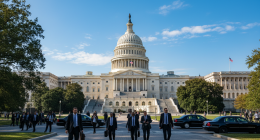Thailand is grappling with significant air quality issues, affecting millions of citizens and prompting government action. The country faces a complex challenge in managing pollution sources and implementing effective measures to improve air quality across its major cities and provinces.
Health Impact and Public Response
Rising Pollution-Related Illnesses
In 2023, approximately 10 million people in Thailand sought treatment for pollution-related illnesses. This staggering number underscores the severity of the air quality crisis and its direct impact on public health.
Legal Action and Public Pressure
Citizens and environmental groups have taken legal action to demand government intervention. In July, about 1,700 people in Chiang Mai filed a lawsuit against former Prime Minister Prayut Chan-o-cha and two state agencies, claiming that pollution in the north was reducing their life expectancy by about five years.
Government Initiatives and Challenges
New Legislation and Emergency Measures
The Thai government has approved a Clean Air Bill, introducing comprehensive measures to manage and control activities that generate air pollution. Additionally, in January 2024, a Chiang Mai court ordered the government to develop an emergency plan to improve air quality within 90 days.
Innovative Pollution Reduction Strategies
To combat pollution, Thailand announced plans to deploy 30 aircraft for cloud seeding to induce rain and ease pollution levels. In Bangkok, officials urged employees to work from home for two days in February when pollution reached unhealthy levels.
Long-term Solutions and Integrated Approach
Balancing Climate Change and Air Quality Goals
Thailand is working on policies that simultaneously address climate change and air quality. The country aims to reduce emissions of major air pollutants, short-lived climate pollutants (SLCPs), and greenhouse gases.
Sector-Specific Mitigation Measures
The government has identified 19 priority mitigation measures across various sectors, including transport, industry, and agriculture. These measures aim to reduce particulate matter emissions by up to 70% by 2030.
Economic and Tourism Considerations
Protecting Thailand’s Tourism Industry
The government recognizes the potential impact of air pollution on Thailand’s attractive tourism spots and is taking steps to ensure that the country’s appeal to visitors is not diminished by poor air quality.
Balancing Economic Growth and Environmental Protection
Thailand faces the challenge of maintaining economic growth while implementing stricter environmental regulations. The new Clean Air Bill aims to strike this balance by introducing comprehensive measures for air quality management.









